The Rabble – Multiple Authors
Adelaide was used as the breeding base for many years of the Marguerite Bay field programs, and where two dog teams, The Picts and The Huns were based, that were used initially for the Adelaide Topo Survey and Geology programs, and then in 1969 and 1970, sledged to join Stonington teams in the Winter activities in the Arrowsmith Peninsula and later the Summer Field Programs.
Some dogs were also retired from the field to Adelaide, and these, together with new pups, usually starting at age 6 months, were formed in 1969 as “The Rabble” – a team used in and around Adelaide for training and recreational travel.
The Met. Men at Adelaide (typically being frustrated or wannabee GA’s), were most often likely to take up the slack and travelled with the Rabble on many great trips on the sea-ice, and on Adelaide, including over to Rothera Point via McCallum Pass and the Shambles Glacier. Here’s some of the stories.
1969 – The Rabble – Winter Sea Ice Sledging – Bill Taylor
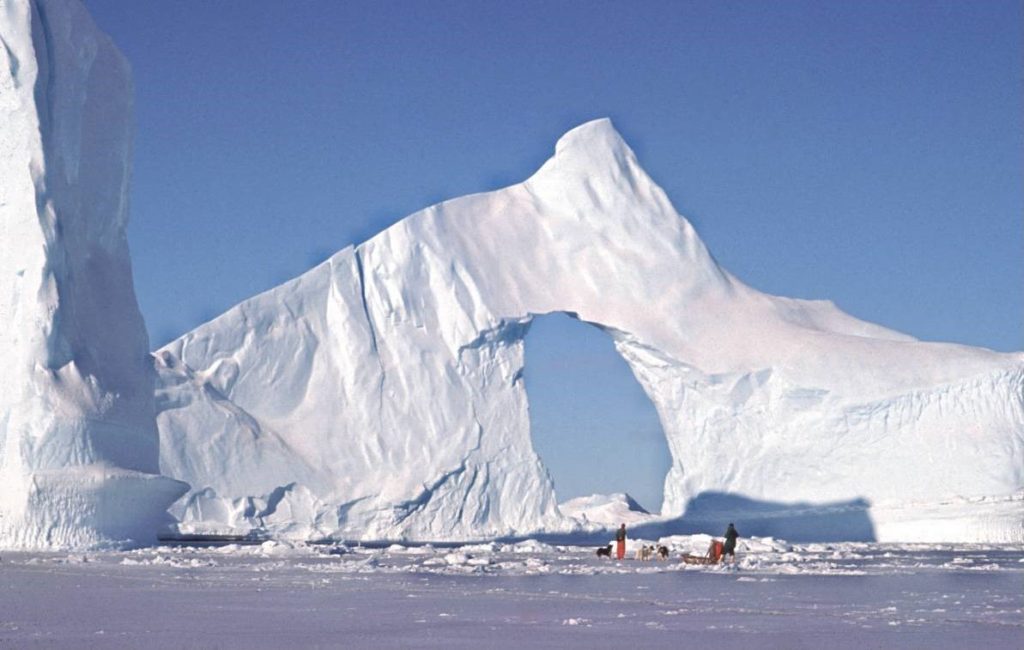
With the exception of the rocks providing a stable site for the various huts making up Base T (where a glacial ramp provided easy access our airstrip on the Fuchs Ice Piedmont) the south and west coast of Adelaide presented as extended ice-cliffs, sometimes vertical and in excess of 100 feet in height.
Seen from seaward when training dogs on the sea-ice, they were very photogenic.
1969 – 5th July – Rabble Graduation – Bill Taylor
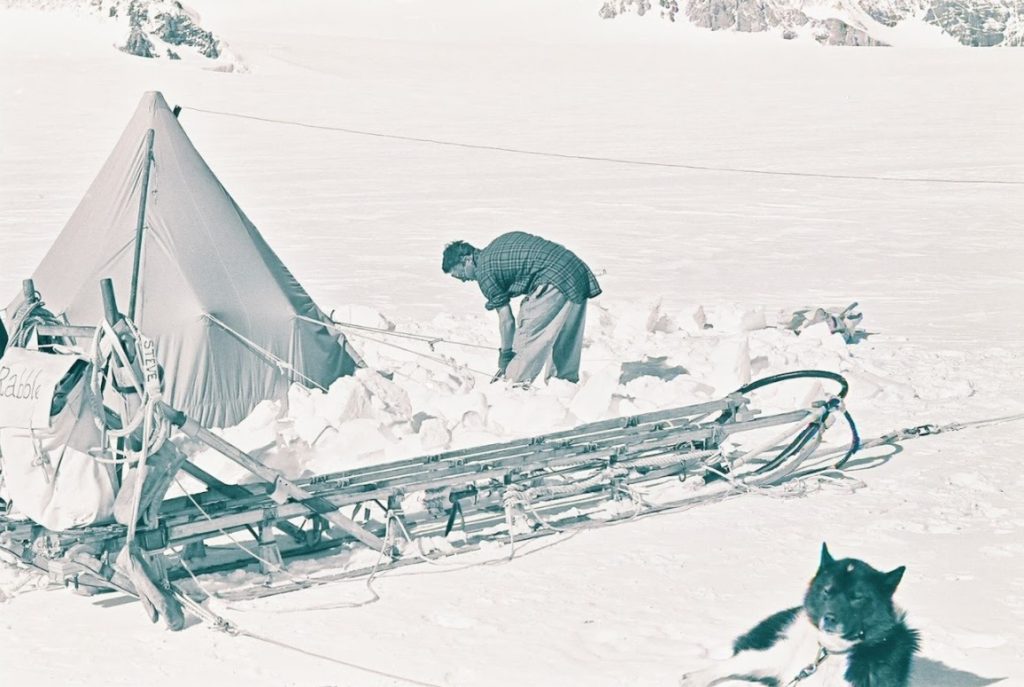
After managing a circumnavigation of Avian Island, the Rabble got the go-ahead to leave with the other two teams, with a departure date set for 4th July, so Steve Wormald and I now had to create a third camping unit, working against the clock. Fortunately, the weather had never agreed to let us away for 4th, and departure was put off until Saturday 5th.
The whole base was up early and breakfasted to help get us away with minimum fuss. As we loaded the 3 sledges in mid-winter darkness, Adelaide had not seen such levels of dog sledding activity for many years. The Picts and Huns, with their 9-dog teams, were carrying full loads.
1969, July 25th – The Rabble to the Dion Islands – Bill Taylor
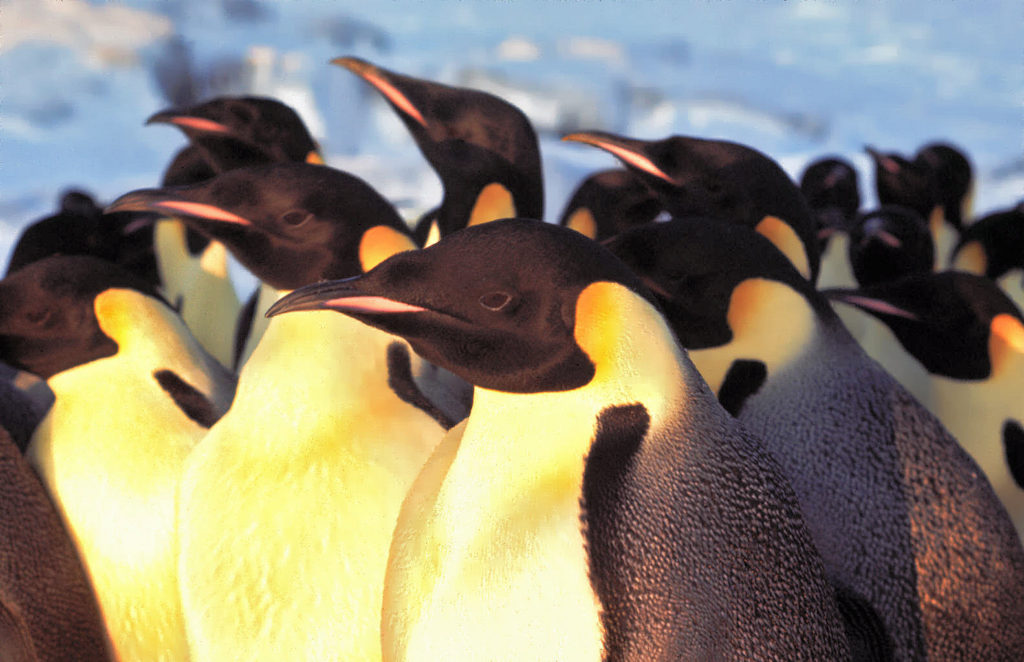
Thursday 25th turned out to be a very special day – among the very best in my term of Antarctic service. It dawned bright, clear, calm and around -23C. Steve Wormald and I were to sledge Dick Bird to the static camp on Avian Island, then bring Ian Willey back to base with a detour to the Henkes Islands, about 5 miles off-shore to the SW. This being a more serious undertaking than most of our training runs, apart from Dick and his personal bag, we loaded the sledge with an extra personal bag, a rope, skis and survival kit, and we knew that Ian would have his personal bag to be brought back with him. So much for the plan; but that is not how it turned out. The official BAS Journey Report that I subsequently wrote takes up what happened:
1969 – The Window
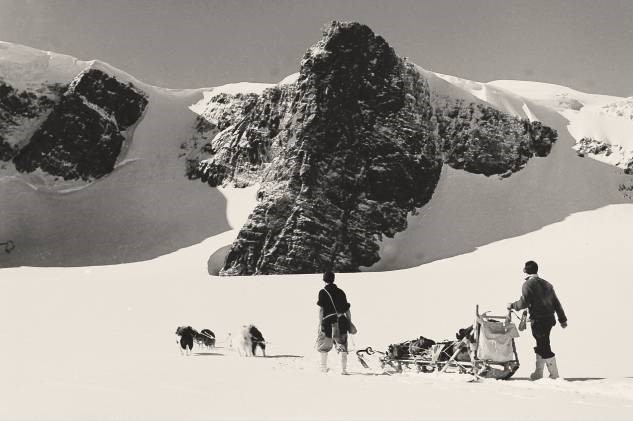
Base T 1969 had more than its fair share of those that thought of themselves as mountaineers and climbers, most of whom harboured ambitious plans to summit one of Adelaide Island’s alpine summits of what is now the Princess Royal Range, the big prize being Mount Gaudry, at 2565m, first climbed by a party of Royal Marines from HMS Protector in February 1963.
There were a couple of recces of the dog-sledging approaches to Gaudry via the col to Mount Barre during the Autumn depot journeys, but a proper assault never came to fruition and was not logistically viable once the Huns and Picts had left base on 5th July to support the Stonington sledging programme.
1972 & 1973 – The Rabble – Roger Wilkins – Met. Adelaide
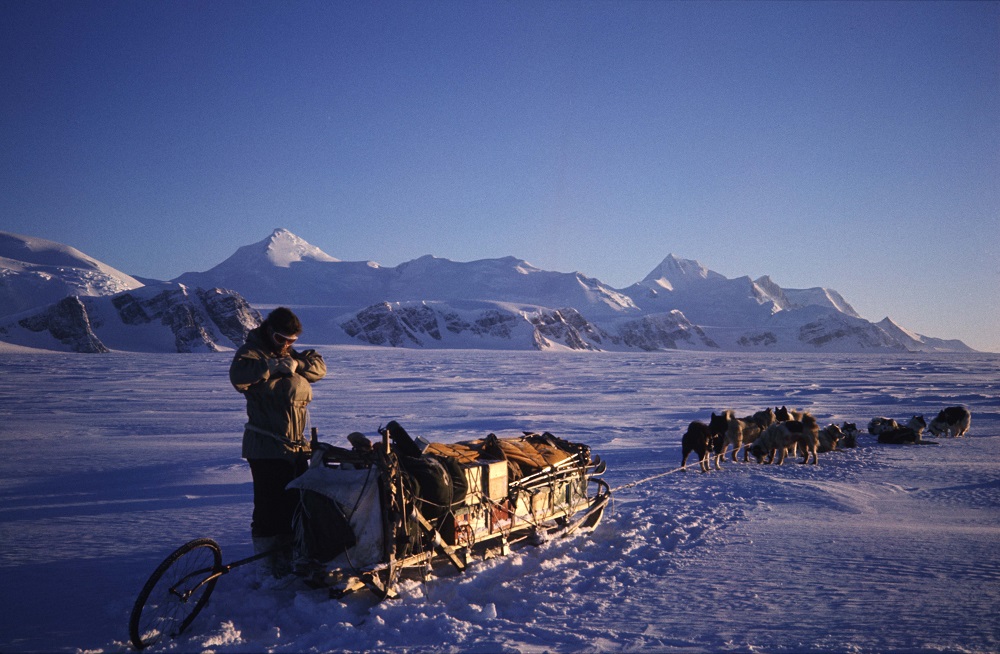
We have probably all heard of transitioning to retirement. In fact, in Australia, there is a separate set of rules for those who want to Transition to Retirement using access to their Superannuation whilst still working Part Time. This need for a transition is, of course, a need largely imagined by those still working. Rather as a person offered water after being lost in a desert or someone offered food after a period of starvation, apparently the excesses of retirement are too intense to be gorged all at once. Strangely, for most of us the reality of the freedom and joy of no longer working is easy to handle. As we are likely to say, how did we ever fit work in?
